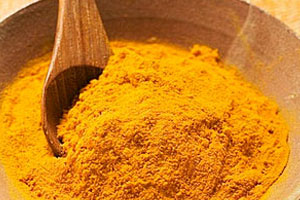As the number of individuals living with Type 2 diabetes continues to rise, additional means of prevention become all the more crucial. And a recent study from the Srinakharinwirot University of Nakomnayok in Thailand, suggests that a spice called curcumin may be the answer.
Curcumin is a compound in turmeric, a spice in the ginger family that’s most commonly found in Indian cooking. According to an article in Reuters, previous lab work has shown strong evidence that curcumin may help fight both inflammation and oxidative damage to cells – two processes that are thought to feed a variety of diseases, including Type 2 diabetes.
Researchers found that a daily dose of curcumin helped prevent new cases of diabetes develop among people with pre-diabetes, a condition involving high blood sugar levels that may eventually progress to Type 2 diabetes.
To conduct the study, which was published in the journal Diabetes Care, Thai researchers gathered 240 adults with pre-diabetes and randomly assigned them to either take a curcumin capsule or a placebo. Those given the curcumin were instructed to take six capsules per day, each containing 250 milligrams of “curcuminoids.”
At the end of the 9-month study, researchers found that of the plaebo group, 19 of the 116 participants had developed Type 2 diabetes, whereas none of the 119 curcumin participants developed the disease.
Lead researcher Somlak Chuengsamarn suggested that curcumin is a naturally effective method of diabetes prevention saying, “Because of its benefits and safety, we propose that curcumin extract may be used for an intervention therapy for the pre-diabetes population.”
The curcumin supplements seemed to improve the function of beta-cells, which are found in the pancreas and release the blood sugar-inducing mormon insulin. And because of the supplements’ anti-inflammatory properties, researchers speculate that it helps protect the beta-cells from damage.
While the findings are promising, experts in the diabetes field caution that there are still a lot of questions surrounding this method of treatment and people shouldn’t run out and buy curcumin in hopes of preventing diabetes.
Furthermore, because the study only spanned a nine month time period, other preventative methods such as reducing calories and exercising, are still considered the more effective means of preventing diabetes. So, maintaining a healthy diet and being active 4-5 days a week should still the focus for those at higher risk of developing the disease.
Also Read:
5 Quick Ways to Spice Up Breakfast
How to Beat and Reverse Diabetes
photo via designs for health
